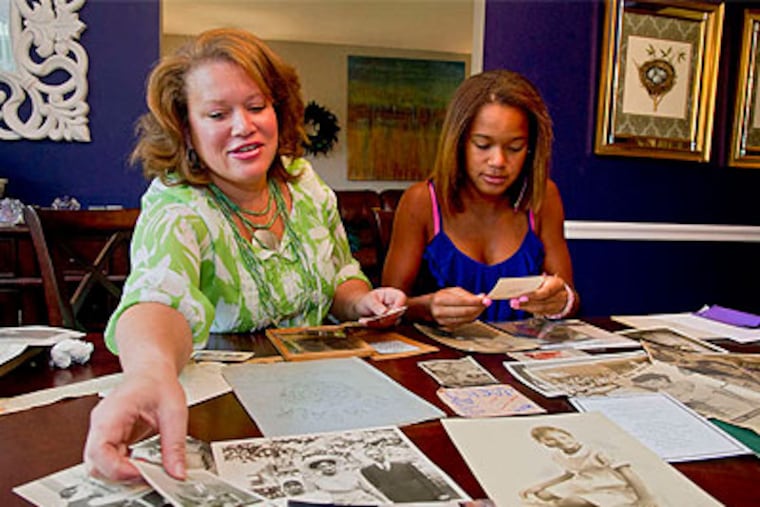Annette John-Hall: Jack and Jill a shining example
It's disheartening to know that so much of what we see and hear of black America is the very worst of black America, especially when the story of black success hardly ever gets told.

It's disheartening to know that so much of what we see and hear of black America is the very worst of black America, especially when the story of black success hardly ever gets told.
Well, a big chapter of that story has come home to Philadelphia.
Jack and Jill of America Inc., the seminal social organization for upper-class African American children, founded here in Philadelphia, reminds us that black achievement is not only alive and well, but thriving.
More than 1,500 members and their families have come from more than 200 chapters across the country for Jack and Jill's national convention at the Philadelphia Marriott Downtown this week.
"We focus on our children and we focus on advancement," says Stephanie Gilbert of Dresher, a 44-year-old Jack and Jill mom whose grandmother, Helen Chase Gilbert, was a charter member. "We have high expectations for our children, and we're surrounded by people who have the same expectations."
Jack and Jill collects yearly dues and expects members to host social, educational, and service events that can cost hundreds, if not thousands, of dollars. Sure, some folks still call the invitation-only organization snobby. Or elitist. Or bourgeois.
I call it needed. Its fees may price a lot of people out. But exclusive groups like Jack and Jill are invaluable, if for no other reason than to set an example.
Up and down the hill
Most people don't realize that Philadelphia serves as a haven to a solid and enduring black upper class that has relentlessly pushed achievement through its social and service organizations.
The first African Methodist Episcopal church (Mother Bethel) was established here, as were social groups big and small - the Links, Sigma Pi Phi fraternity (also known as the Boule), National Epicureans, Ye Olde Philadelphia Club, to name a few - all of which thrive today.
But arguably the most vital and important of these is Jack and Jill because, though the need has changed, the mission has remained the same: To serve the children.
The 21 Philadelphia mothers who founded the organization in 1938 envisioned it as a way to keep their children connected and to open their worlds to opportunity despite entrenched discrimination.
Because black children weren't allowed to swim in public pools, for example, mothers would host pool parties at private homes, sometimes those of their white friends. Or, because the Philadelphia Orchestra hired only white musicians, private concerts were arranged with black musicians to show the children that they, too, could aspire to a career in classical music.
Over time, Jack and Jill, well, went up and down the hill. Post-civil-rights movement, membership shrank because some newly conscious blacks saw the group as more elitist than activist.
But as a new generation of African Americans moved to the suburbs, the need for Jack and Jill became apparent.
"A lot of times our kids were the 'lonely onlys' at their schools," says Gilbert, a sales director for AT&T whose daughter and son are Jack and Jill members. "When they have their monthly activity, they find comfort in each other."
The kids, who range in age from 2 to 18, do things like tour museums, take in Broadway shows, have pool parties, and go on annual ski trips.
There's also a regional conference banquet - a showcase for Jack and Jill seniors to announce where they're going to college.
"It's extremely impressive, says Gilbert, a Villanova graduate whose son Christopher is a Penn alum. "You hear Harvard, Penn, Morehouse, and Spelman all night long. At Jack and Jill, it's cool to be smart. It's expected."
For Gabrielle Gilbert, Stephanie's 14-year-old daughter, being a Jack and Jiller is a source of pride.
"As a black person, sometimes I feel embarrassed that I have such a bad title," Gabrielle says. "But when I'm with my friends at Jack and Jill, I'm proud of my title."